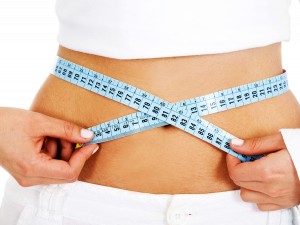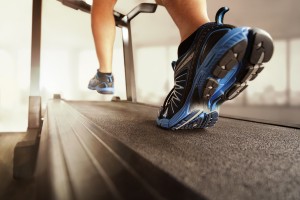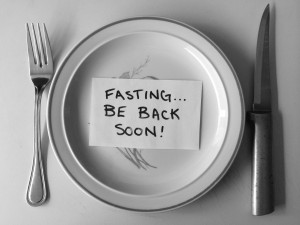 Many individuals struggle with weight loss, or simply want to lose a couple extra pounds. This process can be simple for some, and challenging for others. Weight loss can also differ between individuals based on various circumstances including having certain medical conditions, mobility issues, work conflicts, etc. However, there are treatments that can help, that can be provided through your naturopathic doctor. A Naturopathic doctor can use the following therapies to achieve therapeutic benefits for weight loss:
Many individuals struggle with weight loss, or simply want to lose a couple extra pounds. This process can be simple for some, and challenging for others. Weight loss can also differ between individuals based on various circumstances including having certain medical conditions, mobility issues, work conflicts, etc. However, there are treatments that can help, that can be provided through your naturopathic doctor. A Naturopathic doctor can use the following therapies to achieve therapeutic benefits for weight loss:
- Traditional Chinese Medicine and Acupuncture
- Botanical Medicine
- Nutrition, Diet and Lifestyle
- Hydrotherapy
- Homeopathy
- Physical Medicine
Ultimately, the goal of treatment will be to treat the root cause of disease. For the goal of weight loss, one might argue that there is no root cause, but this may not be true. There is a reason why individuals gain weight in the first place, whether it is due to stress, increased food intake, or developing a medical condition. As a result, the following list offers examples as to what goals might be developed for a treatment plan for an individual:
- Treat any concurrent medical conditions
- Correct for deficiencies
- Reduce stress or Improve stress management
- Improve coping mechanisms
- Improve mood
- Alter lifestyle and diet
- Increase exercise
- Increase metabolism
- Improve mobility
- Improve gut microbiology and digestion
How can Traditional Chinese Medicine (TCM) help?
TCM views the body differently than western medicine. TCM theory suggests that when there is an imbalance in the body system, disease manifests. Each “organ” is associated with an emotion: Heart with joy and is the center of one’s personality, liver with anger, spleen with worry, lungs with grief, and kidneys with fear. All of these emotions can contribute to stress, and therefore difficulties to lose weight. By correcting this disbalance, stress can be addressed, making it easier for some to lose weight. In addition, each organ can be affected by various factors from a TCM perspective, including dampness. Dampness can cause an overall sensation of heaviness and lethargy, as well as contribute to increased weight. By addressing any dampness in an individual’s system, it may help the individual to be able to lose weight.
Once a specific diagnosis is made, a treatment plan is created, and may involve using acupuncture, herbal formulas, diet, or lifestyle, all with the purpose of bringing the body back into a state of balance.
Specifically regarding acupuncture, acupuncture has been shown in some studies to be beneficial for decreasing appetite in individuals who are looking to lose weight. Specifically, in this particular study, 95% of individuals found that there appetite decreased with the aid of acupuncture (http://europepmc.org/abstract/med/9679359).
How can Botanical Medicine help?
Botanical formulas have similar effects to medications, often without the side effects, however this is not true for all herbs and plants. Specific herbs or plants will be selected based on their properties and combined based on the specific individual’s struggles with weight loss. For example, one person may need help with coping with stress in order to lose weight, where another individual may need more energy in order to lose weight. Some beneficial properties that some useful herbs may have include: nervine, anti – depressant effect, sedative, adaptogenic, and metabolism boosting effects.
Much research has been conducted on herbs used for weight loss, many of which should not be taken lightly. The research is positive for such herbs as caffeine and ephedra and their contribution to weight loss, however, many people can have ill health effects from their use (http://www.nature.com/ijo/journal/v30/n10/abs/0803283a.html).
How can Nutrition and Diet help?
One cannot talk about weight loss without talking about diet and nutrition. If an individual wants to lose weight, it is important for the individual to have some changes in their diet. Your naturopathic doctor can help you to make those changes, and make them realistic for your specific lifestyle. In addition, a naturopathic doctor can help you to correct for specific nutritional deficiencies, which may contribute to aiding in overall energy. Based on your specific case, several classes of action may be recommended for you, and thus foods or supplements recommended. These actions might include: anti-oxidant, mood – boosting, energy-boosting, or anti – inflammatory.
As one can imagine, much research has been conducted regarding diet and its role in weight loss. In one particular study, diet and exercise alone contributed to an 8% loss in body fat and 16% improvement in cardiovascular health (http://annals.org/article.aspx?articleid=713672).
How can Hydrotherapy help?
Hydrotherapy involves alternating hot and cold water applications to achieve the following goals: promote detoxification and relaxation, increase circulation, improve immune system functioning, promote digestion, increase metabolism, and decrease pain. Based on all of the following actions, hydrotherapy could be beneficial for weight loss by addressing the various contributing factors to weight gain. In addition, hydrotherapy may be beneficial for inducing weight loss in and of itself.
Hydrotherapy can be performed via a number of methods: constitutional hydrotherapy, sauna, peat bath, Epsom salt baths, or alternating hot and cold showers. These therapies may not be available at every naturopathic doctor’s clinic, but if you are interested in these therapies, they can be performed by myself, Elisha Cook, at the Robert Schad Naturopathic Clinic (416-498-9763).
Very little evidence has surfaced for the efficacy of hydrotherapy and its role in weight loss. However, from a mechanistic view, hydrotherapy could be beneficial for weight loss in helping with the body’s detoxification process. Specifically, saunas can provide a means to help individuals with weight loss and detoxification. In the following study, individuals who incorporated sauna treatments with their exercise regimes lost 3% more of body fat than those who exercised alone (http://www.sciencedirect.com/science/article/pii/S0031938497003533).
How can Homeopathy help?
Homeopathy is an energy medicine that involves finite doses of a substance that are diluted in water, which amount to a higher therapeutic dose overall. In this form of medicine, individualized remedies are chosen based on the individual’s specific symptoms and presentation. Each person requires a different remedy based on their unique presentation. Homeopathy does not interact with any medications, making it quite useful especially if you are taking other medications.
There is very little research on the use of homeopathy for weight loss specifically, and the research is not very impressive, suggesting that there may be mild weight reductions (http://www.nature.com/ijo/journal/v29/n9/abs/0803008a.html). However, research does suggest homeopathy being beneficial for pain, stress, anxiety, and depression, all of which could contribute to weight gain and lack of weight loss (http://europepmc.org/abstract/MED/21733480).
How can Physical Medicine help?
Physical medicine involves a number of different potential therapies. These therapies might include massage, naturopathic manipulation, ultrasound, laser therapy, electroacupuncture, or Gua Sha. The general effect of these therapies includes relaxation, increased circulation, decreased pain, increased metabolism, and decreased inflammation. Similar to what was mentioned above, weight loss can be obstructed by various factors that should be addressed. Specifically in regards to weight loss, research has shown that massage and manipulation can be beneficial in helping individuals to lose fat (http://onlinelibrary.wiley.com/doi/10.1111/j.1468-3083.2009.03355.x/abstract;jsessionid=0AE2C7CC7AC94828461CA98BABA80853.f02t02?deniedAccessCustomisedMessage=&userIsAuthenticated=false).
How can Lifestyle changes help?
Various lifestyle factors can play a role in weight gain. By helping individuals to improve sleep, scheduling, stress management, and adopt an exercise regime that fits their lifestyle, one can move closer to achieving their weight loss goals. Naturopathic doctors are trained to help individuals through lifestyle counselling, and can use methods such as motivational interviewing or cognitive behavioural therapy to do so.
Research is quite extensive regarding exercise and its role in weight loss. As mentioned above, one particular study suggests that individuals who partake in exercise alone can lose approximately 8% of their body fat (http://annals.org/article.aspx?articleid=713672).
Have you benefitted from reading this blog? Know someone that would benefit as well? Share, Like, Comment, or Tweet this article, and let me know what you think.
Some of the information provided above may not be appropriate for everyone, please consult with your doctor before trying any of the above. If you are interested in Naturopathic Medicine and wanting a different approach to your health care needs, please book an appointment with Elisha Cook at the RSNC (416-498-9763), and let me help you achieve your health goals.
 How you approach strength training or exercise of any form can greatly impact the results you achieve and your safety while performing them. Here are some tips and strategies on how to avoid injury and get optimal results while exercising:
How you approach strength training or exercise of any form can greatly impact the results you achieve and your safety while performing them. Here are some tips and strategies on how to avoid injury and get optimal results while exercising:

